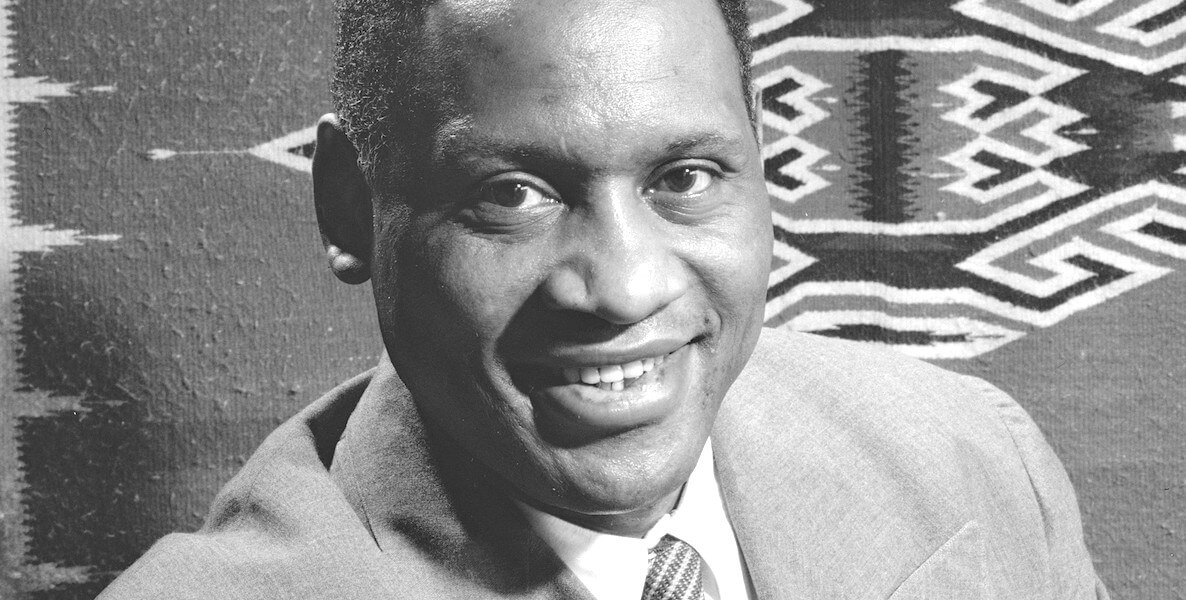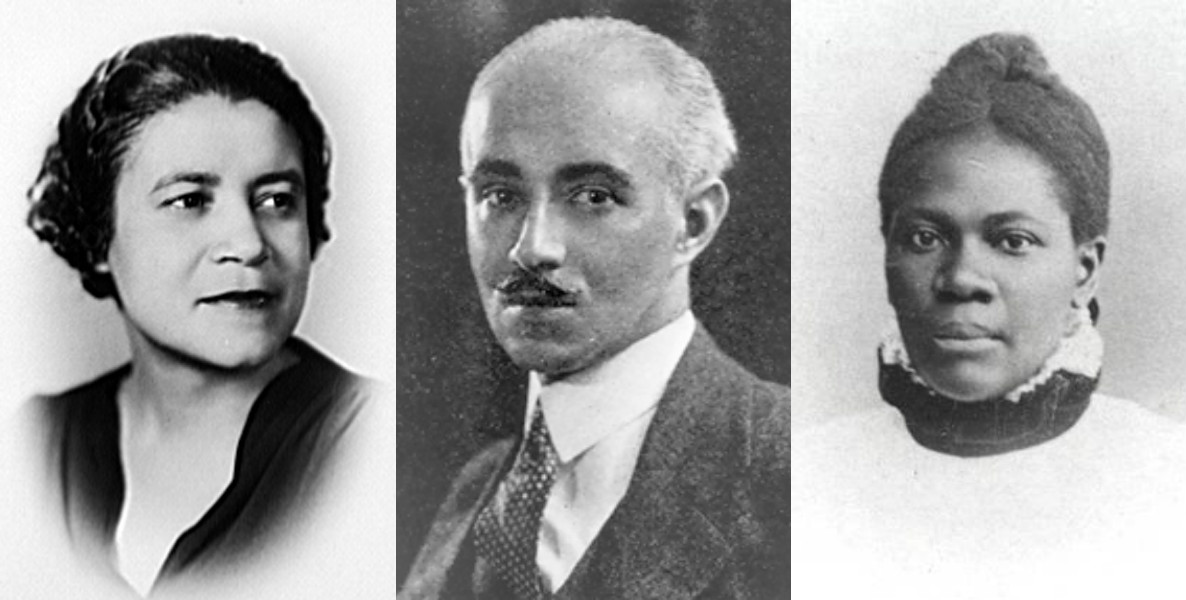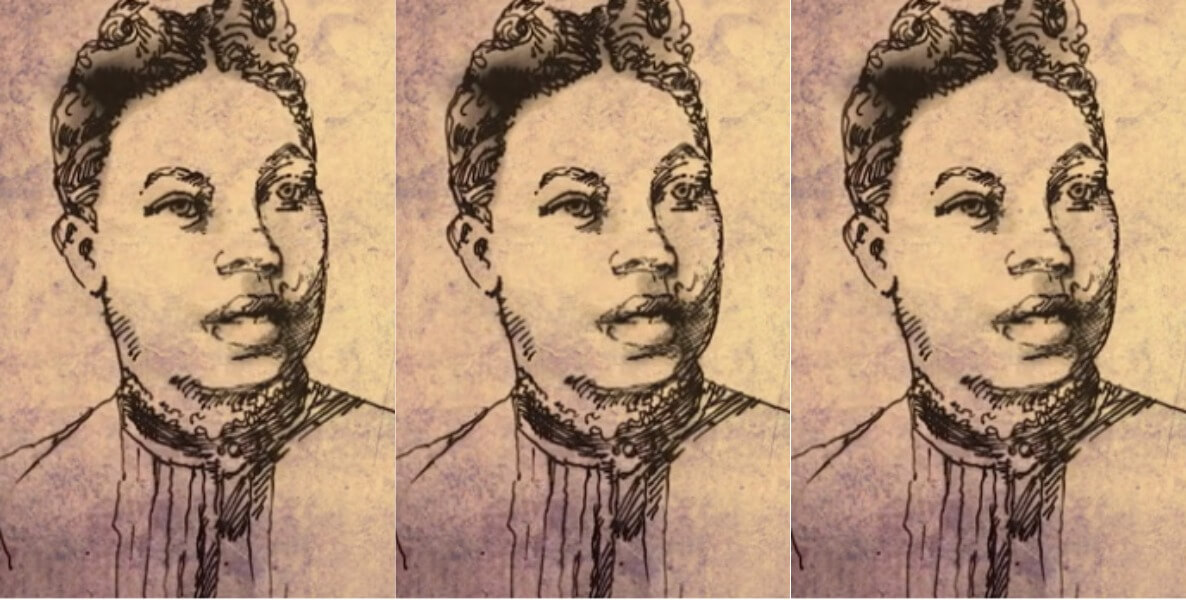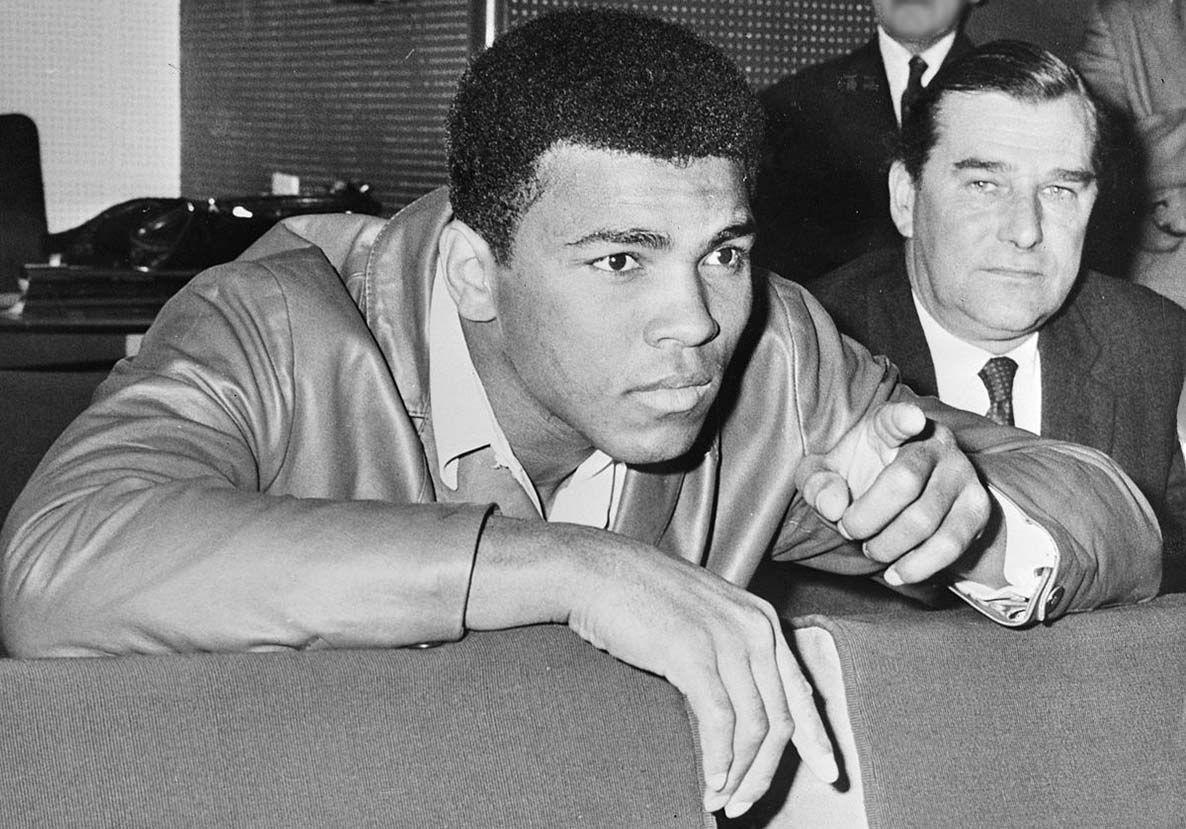Paul Robeson’s mural on Chestnut Street in West Philly is one of the best in this city. It is, more or less, a simple, stately portrait of a man so physically and historically massive that the five stories that it takes up don’t seem like enough.
There is Robeson, on a gold background, looking over the city, smiling slightly as he surveys the grand expanse of Philadelphia, but with a curiously, astutely furrowed brow. The caption under his feet reads “Citizen of the World.” It’s true that he was, but not necessarily by choice: For his personal philosophy, volition and fame, he was cast off by the United States and made a pariah, his political leanings dominating the massive contributions he made to the American lexicon.
Now, when we look at Robeson, a lot of us see a hero, an activist, a brilliant artistic mind, a lawyer of no small talent and a transcendent athletic talent. We see Robeson as people should have seen him then—an exemplar, an American giant, Ezekiel Elliott, Ezio Pinza and Alan Dershowitz rolled into one—and not as he was seen then: a dangerous subversive flirting with a genocidal dictator, a member of the liberal elite and a minority agitator.
There’s much to consider when we talk about Paul Robeson. He’s a Philadelphia champion, and a hero for our times. But, like many people worth writing about, he led a life not only of unapproachable, inimitable success, but of contradiction and no small amount of mistakes. In a sense, he’s an icon for a new era of blatant, aggressive resistance; in another, he can act as a blueprint for how to avoid biting off more than we can chew in an age that almost dares us to assume political and philosophical positions so blindingly pure that we lose ourselves in them.
What we can learn from Paul Robeson today
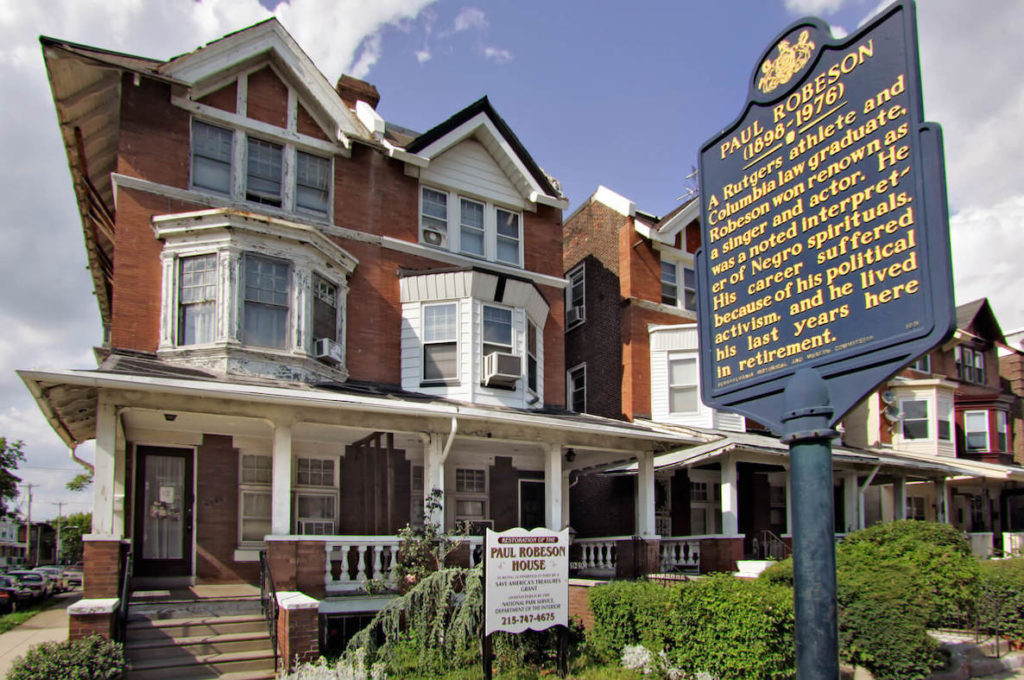
Robeson grew up in South Jersey and retired to Philadelphia; the house where he spent the last decade of his life is a historic landmark in West Philly, where there is also a high school named for him. His father was an escaped slave who once had achieved prominence as a Baptist reverend, but had fallen on hard luck; his mother died in a house fire.
Robeson gained prominence first as an athlete, pulling in 15 varsity letters in four sports while attending Rutgers University on an athletic and academic scholarship. By the time he was 25, he had passed the New York state bar and had become a major Broadway presence. By the time he was in his forties, he had become a worldwide superstar, behind international musical tours and a functionally-emeritus portrayal of the title character in Othello.
Robeson’s support of Joseph Stalin was problematic. A proud Stalin-backer, he was destroyed by a system that chewed him up and spit him out once he went from American dream to socialist inconvenience.
In truth, he was the first modern American Black international icon from outside the world of boxing—à la Joe Louis—or war heroism—à la Henry Johnson. And on top of it all: He was an unabashed, unashamed, hyper-intelligent liberal, who assumed an active role in the Civil Rights struggle, and whose career suffered massively and unjustly as he brought massive attention to his causes.
Robeson would not fit the mold of most of today’s socially-conscious superstars. There’s a hint of public-relations coddling in virtually every celebrity’s anti-conservative statements, designed so as not to drum up a boycott or kill album sales. There’s not only a lack of bravery about it, but a lack of bravura—there’s little to no arm-twisting or name calling or necessary bile. In 1945, when given an audience with President Truman, Robeson grilled him on his lack of support for anti-lynching legislation, and pissed the leader of the free world off so bad that he immediately ended the meeting.
It is important to bear in mind that Robeson’s frank and powerful participation in the Civil Rights movement predated the mainstream movement that we learn about in grade school. The notion of anti-lynching laws and federally compelled integration seemed like pipe dreams then, in a world that had spent the past 30 years embroiled in a pair of conflicts that threatened to end all things.
Robeson was a founder of the American Crusade Against Lynching, and traveled to the deep South to spread his message. His civil rights commitment led, in part, to a riot at an open air concert that he—the most famous African-American man of his time—gave in Peekskill, New York, in 1949. Robeson had everything and sacrificed virtually all of it to back the causes he believed in. If he had just packed up his convictions and laid them bare 10 years later, he might have left this world as an American colossus, unmatched and unmatchable.
Instead, though, he offered his fame and fortune to a cause that would take a decade to get fully coordinated. In his waning years, he’d return to the states after a functional exile to participate in the Civil Rights movement as an elder statesman, just as the protests were gaining traction.
Paul Robeson gave those massive protests that came after him legitimacy, sacrificed his star to help save the soul of America.
One lesson to learn from Paul Robeson, then: Celebrities can affect massive change, but not through their PR guy. Not by spending a Sunday afternoon at a rally, not by doing a commercial where they speak out against gun violence with Matt Damon. They have to sacrifice. When you have everything to lose, it means so much more to the people when you lose it voluntarily.
Paul Robeson’s greatest strength—and his downfall
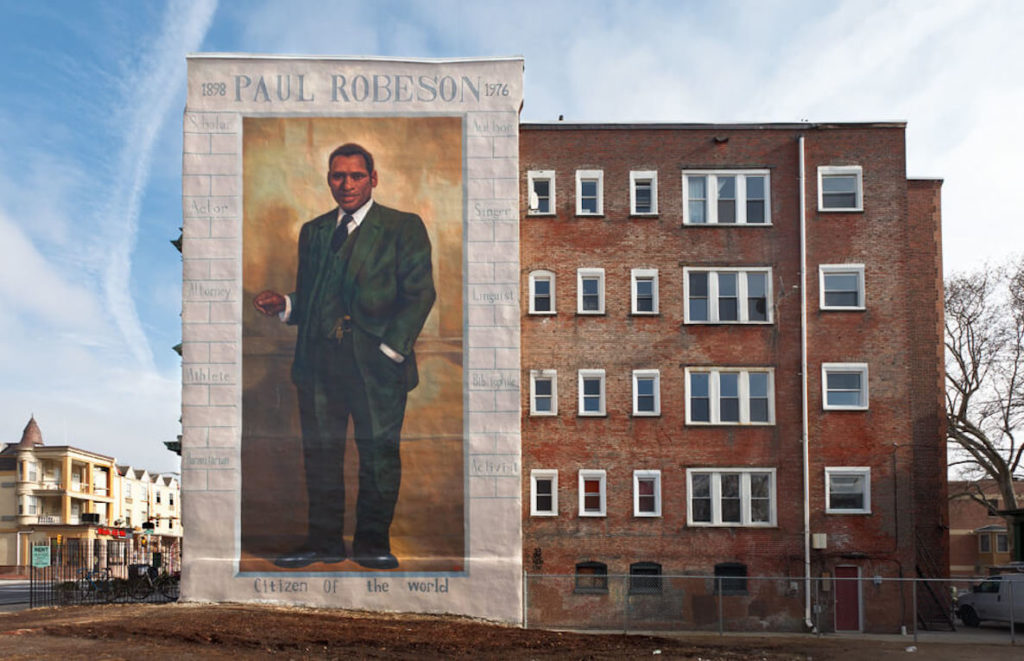
It’s difficult for a middle-class white guy in the 21st century to imagine the life of a socially conscious black idol in the 1930s, ’40s and ’50s. What must it have been like to be a critic-approved socialite in a country that deemed your entire race to be a biological less-than?
Can you imagine what the sting of celebrity must have been when your father had lived through slavery and seen an entire wing of the country stolen back from those who would liberate it? Can you imagine traveling to another country and being treated with not only respect, but wonderment, and then returning home to racial taunts and a government that considered keeping the south nearly completely free of federal intrusion more important than the social integration of a massive portion of its public?
Paul Robeson could not live with the hypocrisy and phoniness that would have followed him for life if he didn’t assume political and social positions. This was his greatest strength, and one of the primary reasons we remember him. It was also his downfall.
Paul Robeson could not live with the hypocrisy and phoniness that would have followed him for life if he didn’t assume political and social positions. This was his greatest strength, and one of the primary reasons we remember him. It was also his downfall.
Robeson was a staunch, anti-Cold War advocate and, at one point, something of a Kremlin mouthpiece. Robeson had performed in Red Russia, and felt uncommonly welcome there; he was certainly enticed by Communist ideology. How couldn’t he be? An entire political and economic system that ostensibly valued the worth of a person’s work exclusively, and discarded their heritage and race as a socially defining feature must have been tantalizing, especially considering the sorry state of race relations of America. The sentiment is understandable.
It’s his support of Joseph Stalin that’s the most problematic. To keep it simple, Robeson was a proud Stalin-backer, especially before the Cold War had reached fever pitch—though he did put distance between himself and the dictator in his later years. In his written eulogy for Stalin, he had this to say:
“Colonial peoples today look to the Soviet Socialist Republics. They see how under the great Stalin millions like themselves have found a new life. They see that aided and guided by the example of the Soviet Union, led by their Mao Tse-tung, a new China adds its mighty power to the true and expanding socialist way of life…So much of this progress stems from the magnificent leadership, theoretical and practical, given by their friend Joseph Stalin.”
I bet you can guess the next beat of this story on your own, but I’ll lay it out for you: The House Un-American Activities Committee dropped Robeson like a hot rock. Robeson, one of the truest American international stars, was brutally blacklisted in a masterstroke of racial manipulation: HUAC trotted out Jackie Robinson to excoriate Robeson before the committee. America, it seemed, had traded its problematic Black hero for a less gallingly political icon, and Congress had compelled one to cannibalize the other. The government revoked his passport and his blacklisting decimated his earning capability; his records, set as a Rutgers athlete, disappeared from history books.
Paul Robeson surely wasn’t the first intellectual to be entranced by Communism; he sure as hell wasn’t the last. He was unfairly destroyed by a system that chewed him up and spit him out once he went from American dream to socialist inconvenience. Yet, at the same time, his embrace of Stalin, a cold-blooded killer, represented a moral blindspot.
Among the many lessons to learn from Paul Robeson, then, for the new standard bearers of resistance: Be wary of extremism; be careful in your support of ideologues.
Paul Robeson, the man—the Philadelphian—was as complex as the 20th century itself. Take a look at him next time you’re in West Philly. He remains historically massive and, simply, inimitable. Five stories in West Philly doesn’t seem enough. He deserves 80.


